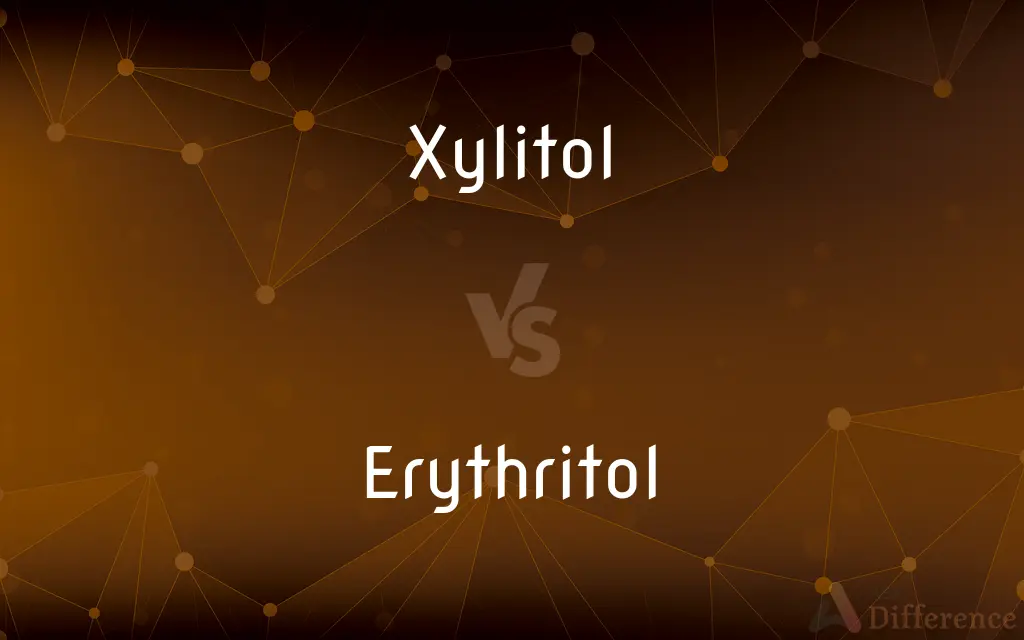Xylitol vs. Erythritol — What's the Difference?

Difference Between Xylitol and Erythritol
ADVERTISEMENT
Compare with Definitions
Xylitol
Xylitol is a chemical compound with the formula C5H12O5, or HO(CH2)(CHOH)3(CH2)OH; specifically, one particular stereoisomer with that structural formula. It is a colorless or white crystalline solid that is soluble in water.
Erythritol
Erythritol is a chemical compound, a sugar alcohol (or polyol), used as a food additive and sugar substitute. It is naturally occurring and is made from corn using enzymes and fermentation.
Xylitol
A sweet white crystalline alcohol derived from xylose, C5H12O5, used in gum and oral health products to inhibit bacteria that cause caries and as a dietary sugar substitute.
Erythritol
(organic compound) A tetrahydric sugar alcohol (2R,3S)-butane-1,2,3,4-tetraol that occurs in some fruit; it is used as a sugar substitute
Xylitol
(chemistry) A pentahydric alcohol, C5H12O5, penta-hydroxy pentane; derived from xylose; used as a sweetener.
ADVERTISEMENT
Share Your Discovery

Previous Comparison
Animal vs. Creature
Next Comparison
Fireplace vs. Mantelpiece














































